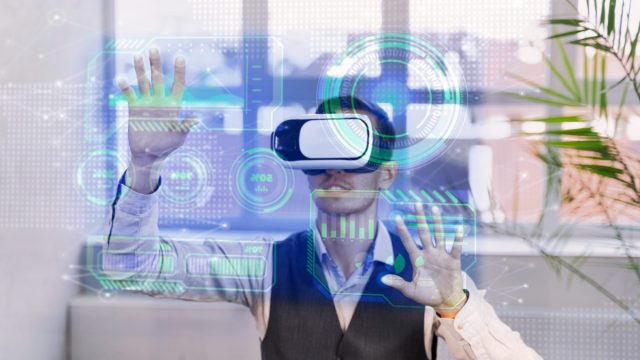Artificial Intelligence (AI) has undergone a monumental transformation in recent years, marking a new era of technological advancement. AI’s influence is profound and widespread, touching an array of sectors, each witnessing significant shifts in operation and capability. This article explores the multifaceted impact of AI, showcasing how it is not merely an addition to existing systems but a revolutionary force redefining the fabric of various industries.
Healthcare
Contents
AI in healthcare is not just a trend; it’s a paradigm shift. Advanced algorithms analyze complex medical data, improving diagnostic accuracy and enabling personalized treatment plans. Machine learning models can predict patient outcomes, assist in early disease detection, and even aid in drug discovery, ushering in a new era of medical excellence.
Geotechnical Engineering
In geotechnical engineering, AI is tackling some of the field’s most persistent challenges. One notable innovation is the integration of AI with the automatic dynamic cone penetrometer, a tool crucial for assessing soil properties. AI algorithms analyze the penetrometer’s data, providing accurate, real-time insights into soil behavior, vital for construction planning and risk assessment. This application of AI enhances the precision of geotechnical investigations. It significantly accelerates the decision-making process, setting a new standard in the field.
Financial Services
AI is significantly transforming the financial sector. From algorithmic trading to personalized financial advice, AI technologies enhance efficiency and accuracy in financial services. Banks and financial institutions utilize AI for risk assessment, fraud detection, and optimization of customer service. AI-driven chatbots and virtual assistants provide customers with real-time assistance. At the same time, machine learning models enable more accurate credit scoring and investment strategies. This evolution in financial services streamlines operations and offers a more tailored and secure experience for consumers.
Natural Language Processing (NLP)
Natural Language Processing has significantly transformed the way humans interact with computers. Today’s AI can understand and respond to human language with remarkable accuracy. From virtual assistants to translation services, NLP makes technology more accessible and user-friendly.
Autonomous Vehicles
The dream of self-driving cars is becoming a reality thanks to AI. Autonomous vehicles with AI algorithms are set to revolutionize transportation, reducing accidents and improving traffic flow. This technology isn’t just limited to cars; drones and crewless aerial vehicles are also part of this transformative trend.
Environmental Conservation
AI is a powerful ally in the fight against environmental degradation. It aids in climate modeling, enabling scientists to make more accurate predictions about climate change. In wildlife conservation, AI-driven monitoring systems track animal populations and detect poaching activities, which is critical in protecting biodiversity.
Cybersecurity
In the digital world, cybersecurity is paramount. AI identifies and responds to cyber threats, outpacing traditional security measures. AI is at the forefront of defending against increasingly sophisticated cyber attacks by analyzing patterns and predicting potential breaches.
Generative AI
Generative AI is opening new frontiers in creativity and content generation. From creating realistic images to composing music, AI’s ability to generate unique content is innovative. It raises crucial questions about originality and authorship in the digital age.
Education
AI’s foray into education is redefining learning and teaching methodologies. By analyzing individual student data, AI can personalize learning experiences, catering to each student’s unique needs and learning styles. AI-powered tools provide real-time feedback, assist in grading, and identify areas where students may need additional support. This personalized approach promises to enhance student engagement, accelerate learning, and bridge educational gaps.
Agriculture
In agriculture, AI is transforming traditional farming practices. From precision farming techniques that use AI to analyze soil conditions and crop health to intelligent irrigation systems that optimize water usage, AI is making agriculture more efficient and sustainable. These AI-driven innovations improve crop yields and support sustainable farming practices, which is crucial in the face of global food security challenges and climate change.
Retail and E-commerce
AI is also revolutionizing the retail and e-commerce sectors. By analyzing customer data, AI helps businesses personalize shopping experiences, recommend products, and optimize supply chains. Virtual assistants and chatbots enhance customer service, providing instant, 24/7 support. AI’s predictive analytics are also invaluable in inventory management forecasting demand to ensure optimal stock levels. This heightened efficiency and personalized customer experience set new standards in the retail industry.
Space Exploration
From autonomous navigation systems in spacecraft to analyzing vast amounts of astronomical data, AI is pushing the boundaries of what’s possible in the final frontier. AI algorithms are being used to process images and data from distant planets and stars, providing previously unattainable insights due to the sheer volume and complexity of the data. AI-driven rovers and probes explore extraterrestrial surfaces, autonomously conducting experiments and relaying critical information to Earth. This integration of AI into space exploration accelerates our understanding of the cosmos. It opens up new possibilities for future space missions, including human-crewed expeditions to Mars and beyond. The synergy of AI with space technology symbolizes a giant leap in humanity’s quest to explore and understand the universe.
Final Thoughts
The impact of AI across these diverse sectors underscores its transformative power. As AI continues to evolve and integrate into various aspects of life, it brings forth a future filled with possibilities and challenges. It’s crucial to navigate this future with a focus on ethical AI practices, ensuring that the benefits of AI are accessible and beneficial to all. The journey of AI innovation is just beginning, and its full potential is yet to be realized, promising a future where technology and human ingenuity collaborate for a better world.


